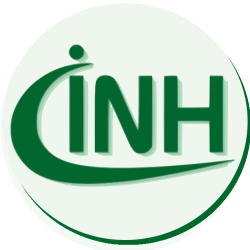 The Twitter user “Skeptic Saturnist” published a trenchant thread some time ago about his medical self-image and his relationship to pseudo-medicine / homeopathy. He kindly followed our suggestion to make this a guest article for the INH. We are very pleased to publish this contribution below. In accordance with our own objectives, we understand this contribution primarily as an appeal for a generally better patient-centred medicine, of which pseudo-medicine criticism is a part and the scientifically founded criticism of homeopathy is an important – because prototypical – aspect.
The Twitter user “Skeptic Saturnist” published a trenchant thread some time ago about his medical self-image and his relationship to pseudo-medicine / homeopathy. He kindly followed our suggestion to make this a guest article for the INH. We are very pleased to publish this contribution below. In accordance with our own objectives, we understand this contribution primarily as an appeal for a generally better patient-centred medicine, of which pseudo-medicine criticism is a part and the scientifically founded criticism of homeopathy is an important – because prototypical – aspect.
The medical profession is perhaps the most important key to effectively counteract the still widespread misinformation of the population about homeopathy. Who else but homeopathic doctors (and health insurance companies) support and promote false credibility of the sham method of homeopathy in daily practice? That is why we are pleased about the developments which have already prompted 10 of the 17 federal state medical associations to remove homeopathy from their continuing education regulations – as well as the efforts to bring the medical licensing regulations, for example, up to a consistently science-based standard. We are of course delighted that individual representatives of the medical profession, such as our guest author, are also personally committed to and positioning themselves for this.
Beyond his Twitter identity “Skeptic Saturnist”, he would like to remain anonymous, a request which we are of course comply with. His real name and e-mail address are known to the INH. Let us hope for times when there are no more good reasons to protect ones identity as a critic of pseudo-medicine / homeopathy. We thank “Skeptic Saturnist” very much and recommend to follow him on Twitter!
I’m a doctor – and I stand by it!
I stand by the fact that I practise medicine, not in the sense of the German term “Schulmedizin” (“scholar medicine”), a term introduced by homeopaths at the end of the 19th century with a pejorative intention, which even today serves to discredit the standards of science, not least in order not to have to meet these standards themselves.
There are many strategies used by alternative practitioners, homeopaths and other paramedical practitioners to denigrate scientific medicine and to try to strike a false balance that is supposed to make the “alternative” appear attractive.
Many of these strategies correspond to logical misconceptions and errors of reasoning. For one thing, there are the many straw man arguments. Here, the characteristics and principles of science-based medicine are deliberately misrepresented so that they can be criticised more easily.
Straw man arguments
It is claimed, for example, that doctors only treat symptoms without looking at the cause. In fact, in medicine, there are two separate fields, pathophysiology and pathophysiology, which deal solely with the development of diseases.
This is where another straw man argument comes emerges, which often pretends that scientific medicine is only about “synthetic drugs” or “invasive interventions”; the image of “soulless apparatus medicine” is being painted. However, contrary to pseudo-medical claims, the guidelines for most clinical pictures include, in addition to clarifying the cause as the first step of treatment, a change in lifestyle and framework conditions that stand in the way of healing or alleviation. Every doctor who is committed to evidence will implement this – but the patients have to accept it, health is not the responsibility of the doctors alone.
In the case of obstructive pulmonary disease (COPD), for example, giving up nicotine is the first priority, in the case of diabetes, improving nutrition and physical activity is increasingly becoming the treatment strategy for many diseases.
Only when these non-pharmacological and non-interventional approaches fall short of the mark, or there are shortcomings in their implementation, should more powerful weapons be brought to bear. And here too, the milder the course of the disease, the milder the therapy can be.
In this sense, there is no such thing as a “soft and gentle” medicine in general. With a balanced medical concept, there is only the right medicine, sometimes soft and gentle, sometimes more invasive.
The tale of “soft and gentle” medicine
If drugs are then used, preference is given to preparations with a proven prognostic advantage. This scientific distinction for a therapeutic procedure, which is not at all self-evident, requires proof of a net effect, a “surplus” in the risk-benefit balance – one that is “clinically relevant”, i.e. of tangible benefit to the patient. It is therefore not just a matter of lowering blood pressure or adjusting sugar levels, only identificable on paper, but of a concrete benefit for the patient’s life.
Prevention of heart attack, stroke, bone fractures, improvement of quality of life or prolongation of life are measurable and, with a well-chosen therapy, can be achieved. So if vascular occlusion is seen as a “symptom” of arteriosclerosis, then its prevention is not a weakness or limitation of medicine, but is linked to a tangible benefit.
Although this net effect is a consequence of the treatment of disturbed bodily functions, which is to be expected in principle, it varies greatly depending on the stage of the disease and also the principle of action. For example, if blood pressure is only slightly elevated, the disadvantages of a drug may initially outweigh the benefits of the therapy and only be overtaken by the benefits of the therapy in higher stages of the disorder. The increased cholesterol level is not initially a disease, but a risk factor. Only when many risk factors critically increase the overall risk or when a secondary disease occurs, cholesterol becomes the target of drug treatment, which can then also prevent or delay dangerous vascular occlusion.
Is it necessary to mention that homeopathy, in contrast to all this, only knows its “bundle of symptoms”, but hasn’t any concept of disease to its disposal, isn’t related to such complex relationships and medical prophylaxis is foreign to its nature… ?
Whataboutism – But what about…
Another arena for discussion is the frequently encountered whataboutism, i.e. the attack on – alleged or actual – opponent weaknesses as a distraction from criticism of one’s own shortcomings. The fact that antibiotic resistance is a problem is used as an argument to discredit the usefulness of the entire infectious disease concept or to praise ineffective globules as a “valuable alternative”. There is nothing more to be said about such a “strategy” than that it is a form of the well-known “hold the thief”. How is justified criticism to be invalidated by pointing the finger at possible weaknesses of the other party?
Addressing weaknesses and undesirable developments is an essential part of scientific discourse. Unfortunately, economic interests sometimes run counter to scientific objectives. Ineffective or risky preparations are marketed against better knowledge or important substances are re-labelled from one indication to a more lucrative one for economic reasons.
Objective observers of the medical and pharmaceutical industry, such as government agencies, self-governing bodies in the health care system or publications such as the “arznei-telegramm”, criticise this practice and counteract it with regulations, so that there can be no question of a sworn community of health care, pharmaceutical industry and science.
If the same quality control and review mechanisms in homeopathy had not been undermined by politically and ideologically motivated exceptions in the German Medicines Act, the sham medicines of the “special therapeutic directions” of homeopathy and anthroposophy would not exist at all – at least not as legal medicines, they would probably be found on drugstore shelves alongside food supplements and bath additives (which, by the way, was really one of the plans at an early stage of the German Medicines Act of 1978).
Survivorship Bias – What we see is the full picture – or isn’t it?
Another narrative that only works in today’s age of very advanced medicine is a variant of the survivorship bias. Here, the perception and classification of a disease or health problem is based on the end result of decades of successful developments whose beginnings are no longer present to us.
Because vaccinations work, parents no longer have to fear polio paralysis or their children being suffocated by diphtheria. Because asthma can be very well controlled with inhaled corticoids in 95% of cases, the disease is no longer perceived as so threatening and the difference that the established therapy makes compared to earlier times is hardly noticed.
Also, hygiene standards and the quality of drinking water and food are so high in industrialised countries that propontents of paramedicine can afford to occupy sideshows, which then manifests itself in the (pseudo-)optimisation of vitamins (D), nutrient compositions (spelt vs. wheat) or avoidance of apparently harmful substances (gluten).
Scientific research on such topics is certainly available and can help to make well-founded decisions. However, propaganda by self-proclaimed healers and providers of expensive alternative products is often more effective than sober education. Only the development of prevention and the success of treatment for many diseases has created the basis for the fact that the struggling for motivation of the population to support some subjectively annoying measures (such as vaccination) becomes ever harder. Even the intensive preoccupation with rather minor aspects of health care is only possible after the greatest dangers have been successfully overcome. One should bear this in mind when people who refuse vaccination in principle are on the other hand convinced of measures whose effectiveness is often more than questionable (such as overdosing on vitamins). The cognitive dissonance that should actually be there has long since faded away – a consequence of survivor bias.
False balance – some say so, others say so
Partly calculated, partly involuntary support is provided to the pseudo-medicine by the press in its efforts to achieve the most balanced reporting possible. But just as there is no neutral middle position between the accepted and millionfold verified model of the (approximately) spherical earth and the out of ignorance, naivety or the desire for the existence of secret special knowledge revived idea of a flat earth, there should be no two standards in the evaluation of clear medical evidence. It is true that a not insignificant part of those working in the field of medicine and of the patients does not look beyond the only superficially correct, at least incomplete sentence “He who heals is right” or the (wish-driven) belief in a gentle, effective medicine free of side effects. But this is not a legitimate reason for the media to present this conglomerate of wishful thinking and ignorance as equivalent with the hard-earned knowledge gained in science. This also includes the endlessly repeated clickbait headings (“Homeopathy – What’s up?”), which suggest open questions where there have long been no open questions. As in political debates, when positions are clearly polarised, journalists are not asked to shrug off neutrality between positions, but to strive for true objectivity when it comes to representing positions that can be justified intersubjectively und aren’t opinions merely.
A frequently encountered point of criticism, which is brought up by representatives of paramedicine, is the pursuit of profit in the health care system. In the pharmaceutical industry, the influence of money as a driving force has been felt for a long time, but these effects are increasingly being found in the decision-making processes in the medical commercial complex itself due to the growing influence of hospital groups. There are many legitimate reasons to observe this development critically and to demand corrective measures in order to put the aspect of public health welfare back into the centre of action.
Money Money Money
A frequently encountered point of criticism, which is brought up by representatives of paramedicine, is the pursuit of profit in the health care system. In the pharmaceutical industry, the influence of money as a driving force has been felt for a long time, but these effects are increasingly being found in the decision-making processes in the medical commercial complex itself in view of the growing influence of hospital groups. There are many legitimate reasons to observe this development critically and to demand corrective measures in order to put the aspect of public welfare in this sensitive area of life back into the centre of action.
In terms of motivation to earn money with health services, however, there is no fundamental difference between manufacturers of pharmaceuticals containing proven active ingredients and homeopathic manufacturers or between evidence-based doctors and providers of dubious procedures. The big difference is that despite all the undeniable influence of industry and lobbyists in the regular approval and quality control of drugs and therapeutic procedures, effective control mechanisms exist. Randomised studies with peer review, approval procedures and reporting systems for practical use ensure that ineffective or harmful applications do not even make it into the medical system, or at least are discovered sooner or later and eventually disappear completely. In pseudomedicine, this control is non-existent because no objective criterion has been defined from the outset to monitor effectiveness and safety. This shows a blatant weakness of a form of medicine based on subjective experience and arbitrariness, which also has a considerable impact on patient safety – where criteria are missing, there are no such against which errors and misconduct could be measured.
Conclusion
I will continue to engage in discourse and consultation in my practice for scientific medicine and for fact-based, self-critical decision-making in diagnostics and therapy. The fame of spectacular promises of salvation and the self-important attitude of ability to explain “ethereal and gentle” everything is missing there, but the claim to be able to fulfil an objective quality standard and to participate in its improvement will remain.
Picture: Gerd Altmann on Pixabay


One Reply to “I’m a Doctor – And I stand by it! – A guest article by “Skeptic Saturnist””
Comments are closed.